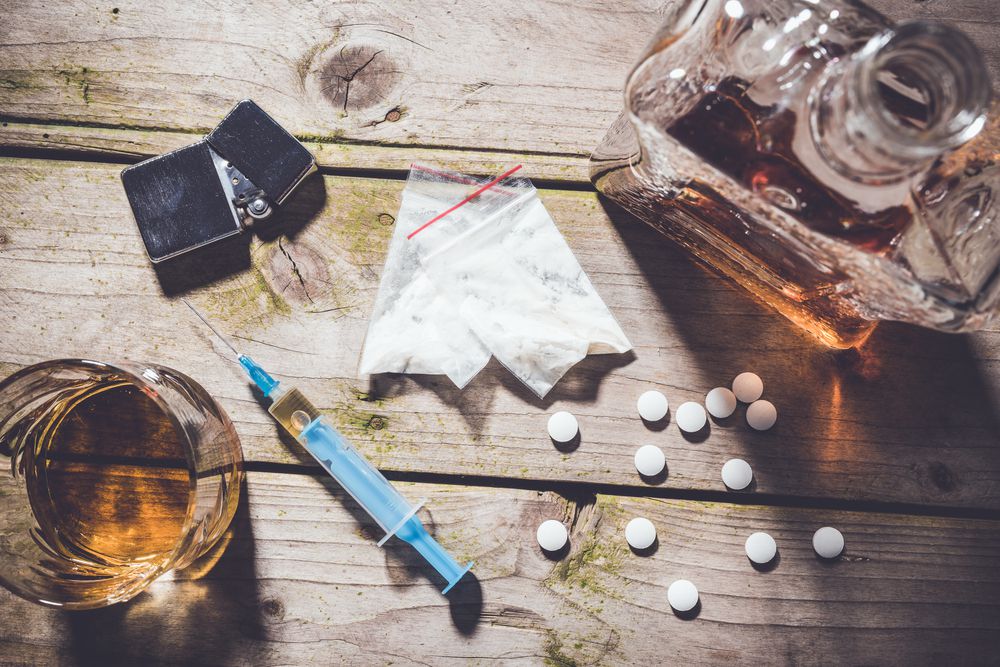7 Myths about Addiction And Recovery
For anyone, emerging from an addiction is a struggle. There are several generalizations and myths about addiction recovery because it’s challenging. The thing about misconceptions about recovery is that they’re risky. Addicts often use them as excuses for bad habits. And, since they accept these myths, their loved ones can unwittingly promote bad behaviour.
With that in mind, we’ve put together this compilation of 7 myths about addiction recovery. You will know what to believe by the time you’re finished reading, and know which misconceptions you should put behind.
Relapse is a Standard Part of Recovery
The first myth in addiction recovery is that a natural aspect of healing is relapse. We perceive this myth about addiction to be very dangerous. It can lead addicts to indulge their relapses frequently.
It has some truth behind it. Many individuals indeed struggle with addiction relapse. It is not easy to recover from addiction and we are all human. However, it should not be normalized.
This myth and its reasoning are tempting. The problem we have is that it claims that relapse is normal. Normal isn’t a term that we should associate with addiction recovery. In fact, in addicts, this myth may encourage self-defeat or harmful conduct. It can also lead to family members with recovering addicts feeling like a relapse is inevitable.
The irony is that there are relapses, but that doesn’t mean the end. It is important to recognize relapse triggers and deal with them. Addicts can heal without relapsing when they have the right help during their addiction recovery process.
Addiction Only Affects the Jobless and Poor
Many people have an idea of what seems like an addict in their heads. They assume an addict is a jobless, unkempt, lonely and maybe even a homeless person. Addiction can be a problem for anybody. Such stereotypes can negatively affect people engaged in addiction recovery.
People with problems with drug use are always very good at covering it up. Alcohol is a prime example. In hectic occupations, such as law and medicine, alcohol addiction is fairly widespread.
Lawyers have a very high risk of stress, addiction, and suicide, in particular. Many individuals with drug use disorders can function normally before their addictions show.
This can affect their professional and personal life later. The facts about addiction treatment are therefore not exclusive to the poor.
You Need to Hit Rock Bottom During Addiction Recovery
They often portray addicts in films as persons who have to hit rock bottom. Indicating that this must happen before they can accept they have an issue. However, with certain individuals, that may be true. This does not apply to all and that’s why this counts as a myth about addiction recovery.
The reality is that there is a turning point for most addicts. It’s the time when they know that they lost control of their addiction recovery. Some people have what we term a high rock bottom. This means a little setback is enough to put them on the path to rehabilitation.
Unfortunately, some addicts never hit rock bottom. Rock bottom is death for them. Addiction is like a long trip on a bus. Some people get off even faster than most. Some get off after the last station while some sit till the last stop. The addict is eventually the only one who will attempt to step off the train. They are free to do so at any time.
Related article: Benefits of Yoga for Addiction Recovery and How to Get Started
Family and Friends Can Do Nothing to Help
This myth about addiction suggests that loved ones can’t help an addict rebound from an addiction. It states that there is little relatives and friends can do against addiction. Of course, no one can stop an addicted person from using it.
However, there are many things friends and family can do to support their loved ones. You can stay optimistic about the counselling from your loved one. You can engage them by taking interest in family therapy. Speak up regarding the potential causes of their misuse of drugs.
Provide a smile or compliment a job well performed to encourage them. Be compassionate and inspiring about their addiction recovery. Remain hopeful and supportive.
Finally, remain compliant with standards, laws, and implications and keep your promises. You can also learn about the substance of choice and addiction. This will help you understand them more.
Addicts Stick to One Drug
Speaking of a drug of preference is relatively normal. The myth suggests that a cocaine user will always use cocaine. However, just because someone is addicted to a single product doesn’t mean they can’t try others. This can slow down addiction recovery as it can be misleading.
For instance, Ecstasy users use many different forms of drugs in addition to ecstasy. Some of these drugs include alcohol, MDMA, marijuana, and more. In fact, over 50 percent of ecstasy users still use meth. Addiction is not necessarily based on the medication; it can and is sometimes used interchangeably. The problem is less about addressing one drug and more of managing the addiction.
This is a common addiction myth about drug addiction treatment. This is because tackling the drug can distract from preventing alternatives.
You Choose To Be an Addict
Another very harmful myth regarding addiction recovery is that it is by choice. People choose to drink or consume substances, but no one chooses to become addicted. Of course, if you never try to use a substance, you can’t become addicted.
Furthermore, not everybody that takes substances creates a serious problem of substance use. It’s impossible to realize in advance if you’re going to have an addiction. It depends much more on the drug itself to become dependent.
A large percent of addiction has to do with multiple hereditary variables. There exist hundreds of addiction-related genes. Identifying them early can make addiction treatment services easier.
Some of these also impact how easily drugs such as alcohol are absorbed. Others affect how much enjoyment you get from different substances, like alcohol or cocaine. Knowing a parent that suffers from addiction allows you to learn about your potential addiction. Furthermore, individuals with addictions may have co-occurring conditions.
Examples of these conditions are:
- Depression
- Depressive disorders
- PTSD
- Bipolar illness
- Schizophrenia.
Substance abuse is a symbol of a different concern for these persons. Additionally, peer pressure can also factor in. The environment you live in can also increase the risk of addiction.
You Can Beat Addiction with Sheer Willpower
Willpower is not adequate for a person in the process of addiction recovery. Addiction is not an option; it is a compulsion. Willpower is a misleading myth of addiction that can be harmful.
Addiction can act as a dominant, persistent disease that gives a false sense of brain reward. It causes the individual to have such a strong obsessive need for their drug of choice. Most times, even if they know it is harmful to continue, they are unable to stop.
This is because your mind can come up with excuses to justify an addiction. No matter how you restrain yourself mentally, you need to confront your addiction. Once you accept your addiction, you can properly tackle it.
Conclusion
By now you are familiar with the various misconceptions associated with addiction recovery. Remember that you are never alone on your road to recovery. Try to seek help as soon as possible.
Fortunately, we at Addiction Healing Centre provide the best form of addiction treatment service. We are a prime drug and alcohol treatment facility. We offer 12 step programs and other holistic treatments to ease you off your addiction. Call Inspire Change Addiction Rehab in Vancouver for addiction treatment programs.
We ensure that your loved ones are carried along and aware of your progress. We believe that everyone is different and no single technique applies to all. You get personal consultation from our staff and enjoy a stigma-free environment.






